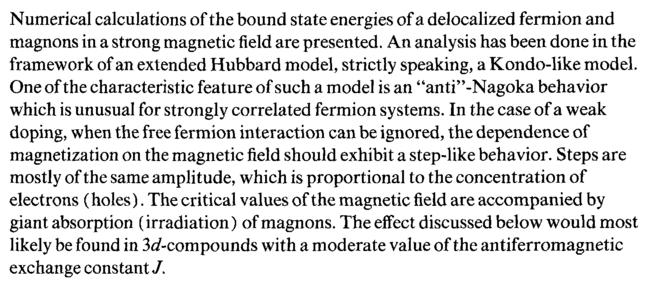|
|

| VOLUME 53 (1991) | ISSUE 6 |
PAGE 329
|
Fermion-magnon bound states in strong magnetic field: Analysis of the extended Hubbard model
Uimin G. V.
Numerical calculations of the bound state energies of a delocalized fermion and magnons in a strong magnetic field are presented. An analysis has been done in the framework of an extended Hubbard model, strictly speaking, a Kondo-like model. One of the characteristic feature of such a model is an "anti"-Nagoka behavior which is unusual for strongly correlated fermion systems. In the case of a weak doping, when the free fermion interaction can be ignored, the dependence of magnetization on the magnetic field should exhibit a step-like behavior. Steps are mostly of the same amplitude, which is proportional to the concentration of electrons (holes). The critical values of the magnetic field are accompanied by giant absorption (irradiation) of magnons. The effect discussed below would most likely be found in 3i/-compounds with a moderate value of the antiferromagnetic exchange constant J.
|
|


